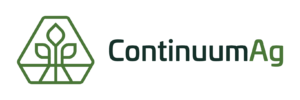The regenerative ag/soil health/sustainability, movement has continued to gain a lot of notoriety, a lot of press, and awareness. However, we still need to come up with a strategy for the adoption of these regenerative practices. Washington County, Iowa is a really interesting place in that there are a lot of farmers that are utilizing practices like no-till and cover crops. It’s been interesting for me to see how farmers who didn’t get into the movement right away are handling things on their own operations. These are folks that were not the innovators or the early adopters, but they are now coming to the table and they want to learn. They are asking the right questions, they’re seeking advice, and they’re looking to really implement these concepts on their own farms. A resounding message that I hear when people are talking about scaling regenerative agriculture is the building of community. Farmers really need that helping hand to help them take a leap, have a shoulder to lean on, and ensure that they are not alone. They are implementing something completely new on their own operation and for some, that in itself is intimidating. We want to be able to continue to scale that community and network via social media, our podcasts, blogs, and the Continuum Ag company. But we also want to be able to scale through data systems. That is part of what we, at Continuum Ag, want to keep building through TopSoil.
Another key item that farmers need as they are scaling and adopting regenerative systems, is data. Data is important to give them a clear and direct pathway forward while assisting them in tracking progress so the farmer can know for sure that they are moving in the right direction. Making strategic next steps forward while also ensuring that they are reducing risk anywhere possible.
Now that we have established producers into the regenerative/sustainability movement, we are seeing a lot of companies that are entering into this same new space who are trying to help scale regenerative ag via ecosystem service markets. I think these are great in that it is going to provide farmers a lot of options for new revenue streams and ensure that the economic risks are lower, while they work on the logistic risks through their networking and data systems. The key, as companies get involved, is to help us ensure that there is a clear path forward towards creating these new saleable assets. A clear path toward creating a carbon credit off the farm, towards creating water quality credits, or flood mitigation claims. We have to be able to have clear and concise data that is actually able to be implemented using “farmer language”.
We are excited to be working with multiple companies throughout 2021 and beyond to help them better connect with producers, to learn and help us build out networks, data systems, community, and the clear path towards creating new saleable assets. Stay tuned for more blogs on our website as we help farmers overcome the logistic and economic risk of adopting sustainable ag systems and helping to scale the movement at large.



